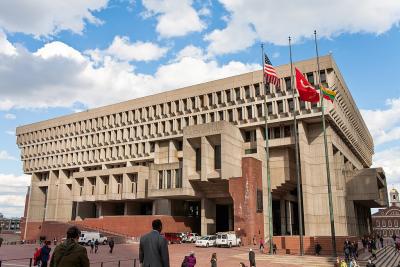Meeting Public Sector Challenges and Opportunities with Commerce

FREE Membership Required to View Full Content:
Joining MSDynamicsWorld.com gives you free, unlimited access to news, analysis, white papers, case studies, product brochures, and more. You can also receive periodic email newsletters with the latest relevant articles and content updates.
Learn more about us here
This article is sponsored by Evenica.
Public sector organizations, and particularly municipalities, face a variety of unique challenges related to managing a mix of new and legacy business systems that must work together to meet evolving requirements. In a recent MSDW panel event, Microsoft MVP Rick McCutcheon led a discussion with Kelly Mazur and Gustavo Roland of Evenica and Microsoft MVP Bobby Small of Ellipse Solutions exploring the ways that Dynamics 365 Commerce and other Microsoft business solutions are helping public sector organizations to reach their operational and constituent goals.
A top challenge: Information silos
Mazur explained that the biggest challenge Microsoft partners like Evenica see in public sector is siloed legacy systems and organizations looking for ways to improve their operational processes and constituent experience between them efficiently. She told the audience:
We see a lot of municipalities that are looking to use Dynamics 365 Commerce to solve [information silos]. There are two ways that we like to look at this. From the citizen side, it's not a great experience to have multiple sign-ons within your city. So if you think about where you live, you probably have a separate sign on to pay your taxes, to buy a license for your dog, and to pay your parking tickets… On the other side for the municipality or in the public sector, you're looking for that single source of truth when you have these siloed systems that's something that's missing so you don't have that one holistic view of the citizen.

According to Roland, an important difference between public and private sector technology investment is the KPIs. In the private sector, it is straightforward for companies to assess return on investment in terms of customer acquisition, average order value, or criteria unique to an industry. By contrast, the public sector can be more nebulous, with efficiency and the needs of citizens being harder to measure.
Governments often worry about siloed information, with different departments relying on different data sources and systems. Internationally, Germany and France are investing billions of euros in technology modernization, digital initiatives, and single-market innovation to help to bridge these gaps, Roland noted. Commerce can enable government agencies and municipalities, even those without the deep pockets of national governments, to deploy portals that streamline services and improve productivity behind the scenes, he added.
Solutions that bring together disparate requirements
Small told the other guests that he is part of an online group focused on governments deploying Microsoft systems. “They get together and showcase all the ways they're using portals, and it's just amazing, the adoption rate and the [pace] at which this is taking off. [It is] incredible,” he said.
Small says government entities can benefit from integration of Dynamics 365 solutions with typical legacy systems that handle functions like procurement and vendor payment. They can make use of important Dynamics 365 Finance capabilities like signing limits, and adding solutions built with Power Platform can improve areas like budgeting and approvals, preventing organizations from going over defined spending limits.
He also noted other ways that the public sector can benefit from integrated capabilities like security compliance standards or integration with Microsoft productivity tools like Excel, Word, Outlook, and Teams. Additionally, many public sector organizations do forms of warehousing and inventory management that Commerce can support.
“We always like to say that commerce exists where transaction meets interaction,” said Mazur. “So we find that there's a good fit for Dynamics 365 Commerce for municipalities or local governments when they're seeing this need to merge both the transactions and the interactions and have that holistic view.”
The value of public sector RFPs
Evenica fields dozens of RFPs a year, Mazur explained. Although municipalities rarely buy “off the shelf” software, Evenica’s ability to provide a comprehensive suite of capabilities with D365 Commerce streamlines the process of fulfilling municipal needs in an RFP. The firm also provides assessments to public sector customers, helping them determine if Commerce or other Dynamics 365 capabilities are a good fit.
Roland added that in the RFP and assessment process, Evenica’s goal is to provide public sector organizations benchmarks and “paint a bigger picture” of what the implementation process will look like.
We make sure that we understand the current state [of their systems], and where they want to go to, because those [current system] can become a roadblock. [Then we leverage the accessibility modules] as well as insights and analytics, together with the compliance and security with the Azure Trust Center. That enables them to have end to end solution with the use of Commerce and Power Apps.
“When we're looking at public sector…we have been [focusing on] the Commerce for municipalities experience for the past three years,” Mazur said. “And we're so happy to see that that thinking is now aligning with the current mindset of public sector. We think that there's so much more to be explored there.”
...
Image credit: andrewjsan, CC BY 2.0, via Wikimedia Commons
FREE Membership Required to View Full Content:
Joining MSDynamicsWorld.com gives you free, unlimited access to news, analysis, white papers, case studies, product brochures, and more. You can also receive periodic email newsletters with the latest relevant articles and content updates.
Learn more about us here